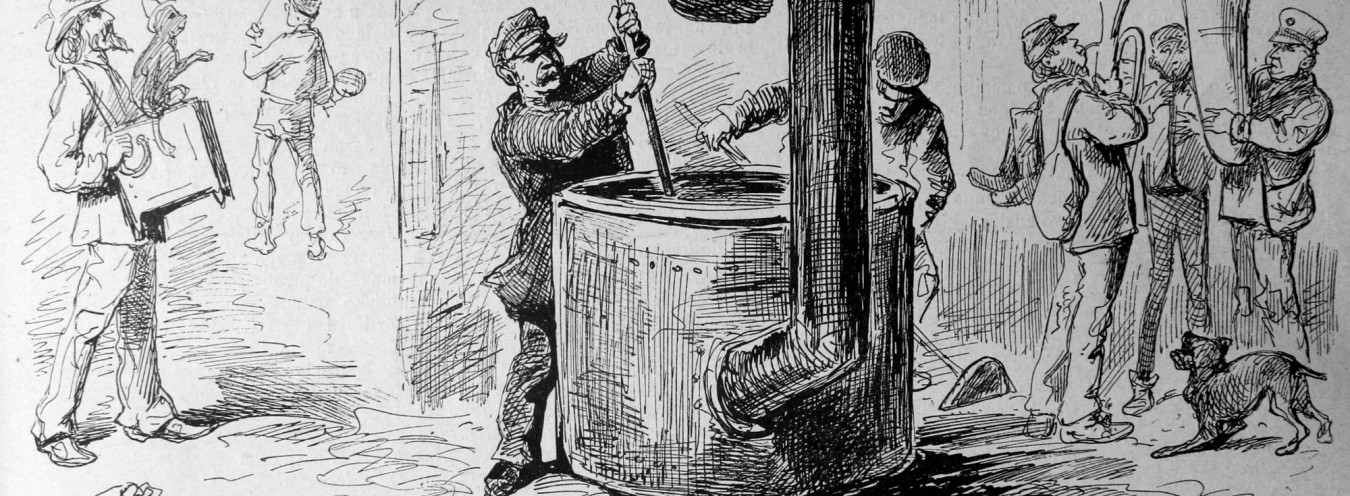
Lower Social Strata
[Wokulski] already realised […] that in a time of misery, when everything else had betrayed him – the earth, a simple man and God remained faithful to him. (584)
“Simple people” play an essential part in the novel, also in terms of its ideological framework. They may be known by their first names (butler Mikołaj, maid Anna) or by their surnames only (cart driver Wysocki and his brother, railroad guard Wysocki, handyman Węgiełek). There is also an entire array of anonymous characters, mostly circulating in the background (servants, construction workers, seamstresses, etc.). The lowest group are paupers observed by Wokulski on the Vistula River bank: Several drunkards, or criminals, were dozing in the sun, there were two women street-sweepers and a loving couple, consisting of a leprous woman and a consumptive man without a nose.
The above-mentioned characters often make an appearance in the pivotal scenes of the novel (e.g., Wokulski’s suicide attempt near Skierniewice), and their social deprivation inspires Wokulski to consider the state of the Polish society, provides a rationale for his reformist ideas and lends validity to his projects. Lower-class characters are often endowed with symbolic meaning: a Christian paradigm of a simple, humble man (e.g., Kacper Wysocki in the Skierniewice scene).
→ Domestic Service; → Society; → The Poor;



